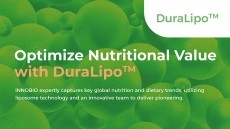Nestlé set for 1,800-strong epigenetics study on maternal diet & infant genetics

The study, which comes as part of collaboration between Nestlé and EpiGen, will see 1,800 women in the UK, Singapore and New Zealand taking part.
The women will be given a blend of nutrients and probiotics and the influence on blood sugar, vitamin and mineral levels, healthy pregnancy and growth and development of the infant will be tracked.
Last December Nestlé said it would be intensifying its research into epigenetics – the study of how environmental factors like nutrition can affect the genes and health of an individual and in turn that of their future offspring and future generations.
The research partnership with Auckland Uni Services Limited in New Zealand, University of Southampton in the UK and the National University of Singapore marked a six-year CHF 22 million (€20.71m) commitment.
It would focus on maternal and infant nutrition, in particular risk factors of pregnancy-related conditions such as gestational diabetes.
Last month an international patent from the company’s research arm Nestec was filed for a probiotic to be taken during lactation and pregnancy it said could help reduce the risk of allergies for the infant. The same month another patent was published for an infant nutrition product with casein protein, which it said could be used to prevent metabolic syndrome disorders later in life.
Writing in the patent, the company described the concept of ‘early programming' with prenatal and early postnatal periods being key windows of opportunity for metabolic syndrome disorders and disease prevention.
“It is now well recognised that suboptimal nutrition during critical periods of development may induce long-term alterations in organ structures or functions, which can predispose humans to later chronic diseases,” it said.
Similar interest has been shown by Dutch multinational DSM, which has begun work on a 1,600-strong study of the relationships between nutrient statuses and phenotypes - the visible or measurable expression of genotypes like high blood pressure, type 2 diabetes, non-alcoholic steatohepatitis (NASH), obesity and risk factors like exposure to air pollution.
DSM said the project was a step towards joining “the different dots”.















